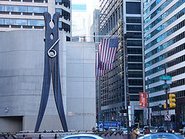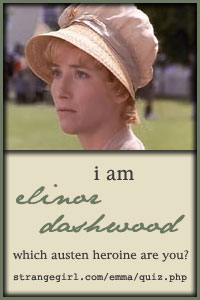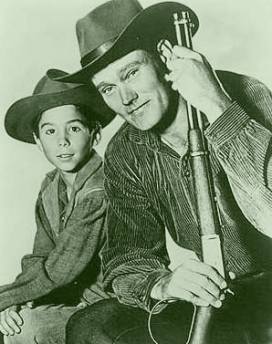Just call me Libby. Libby Tarion.
What is Libertarian?
The libertarian, or "classical liberal," perspective is that individual well-being, prosperity, and social harmony are fostered by "as much liberty as possible" and "as little government as necessary."
According to Funk and Wagnall's Dictionary
lib-er-tar-i-an, n. 1. a person who advocates liberty, esp. with regard to thought or conduct.... advocating liberty or conforming to principles of liberty.
According to American Heritage Dictionary
NOUN: 1. One who advocates maximizing individual rights and minimizing the role of the state.
The Challenge of Democracy (6th edition), by Kenneth Janda, Jeffrey Berry, and Jerry Goldman
Liberals favor government action to promote equality, whereas conservatives favor government action to promote order. Libertarians favor freedom and oppose government action to promote either equality or order.
According to Microsoft® Encarta® Online Encyclopedia
Libertarianism, political philosophy emphasizing the rights of the individual. The doctrine of libertarianism stresses the right to self-ownership and, by extension, the right to private ownership of material resources and property. Advocates oppose any form of taxation and favor a laissez-faire economic system.
According to Libertarian.org
While libertarians are a diverse group of people with many philosophical starting points, they share a defining belief: that everyone should be free to do as they choose, so long as they don't infringe upon the equal freedom of others.
According to David Boaz in his book, Libertarianism: A Primer, Free Press, 1997
Libertarianism is the view that each person has the right to live his life in any way he chooses so long as he respects the equal rights of others. Libertarians defend each person's right to life, liberty, and property-rights that people have naturally, before governments are created. In the libertarian view, all human relationships should be voluntary; the only actions that should be forbidden by law are those that involve the initiation of force against those who have not themselves used force-actions like murder, rape, robbery, kidnapping, and fraud.
According to Charles Murray in What It Means to Be a Libertarian.
(click here for a review of the book)
The American Founders created a society based on the belief that human happiness is intimately connected with personal freedom and responsibility. The twin pillars of the system they created were limits on the power of the central government and protection of individual rights. . . .
A few people, of whom I am one, think that the Founders' insights are as true today as they were two centuries ago. We believe that human happiness requires freedom and that freedom requires limited government.
The correct word for my view of the world is liberal. "Liberal" is the simplest anglicization of the Latin liber, and freedom is what classical liberalism is all about. The writers of the nineteenth century who expounded on this view were called liberals. In Continental Europe they still are. . . . But words mean what people think they mean, and in the United States the unmodified term liberal now refers to the politics of an expansive government and the welfare state. The contemporary alternative is libertarian. . . .
Libertarianism is a vision of how people should be able to live their lives-as individuals, striving to realize the best they have within them; together, cooperating for the common good without compulsion. It is a vision of how people may endow their lives with meaning-living according to their deepest beliefs and taking responsibility for the consequences of their actions.
(Read the first chapter here)
How about a Webster's definition:
Libertarian: A person who upholds the principles of individual liberty especially of thought and action.
Capitalized: a member of a political party advocating libertarian principles.
Libertarians believe in, and pursue, personal freedom while maintaining personal responsibility.
Libertarians strongly oppose any government interfering in their personal, family and business decisions. Essentially, we believe all Americans should be free to live their lives and pursue their interests as they see fit as long as they do no harm to another.
In a nutshell, we are advocates for a smaller government, lower taxes and more freedom.
Are Libertarians liberal or conservative?
Libertarians are neither. Unlike liberals or conservatives, Libertarians advocate a high degree of both personal and economic liberty. For example, Libertarians advocate freedom in economic matters, so we're in favor of lowering taxes, slashing bureaucratic regulation of business, and charitable -- rather than government -- welfare. But Libertarians are also socially tolerant. We won't demand laws or restrictions on other people who we may not agree because of personal actions or lifestyles.
In a sense, Libertarians “borrow” from both sides to come up with a logical and consistent whole -- but without the exceptions and broken promises of Republican and Democratic politicians. That's why we call ourselves the Party of Principle.
How large is the Libertarian Party?
In terms of political activity (i.e. number of candidates, access to the ballot, and elected office holders), the Libertarian Party is the third-largest political party in America. We’re active in all 50 states and have more than 200,000 registered voters.
What kind of offices do Libertarians run for and hold?
Around the nation there are Libertarian mayors, county executives, county council members and even a Libertarian sheriff! Libertarians also serve on school boards and in hundreds of local offices. In 2006 alone, over 13.4 million votes were cast for Libertarian candidates around the nation.
Saturday, May 19, 2007
Subscribe to:
Post Comments (Atom)







No comments:
Post a Comment